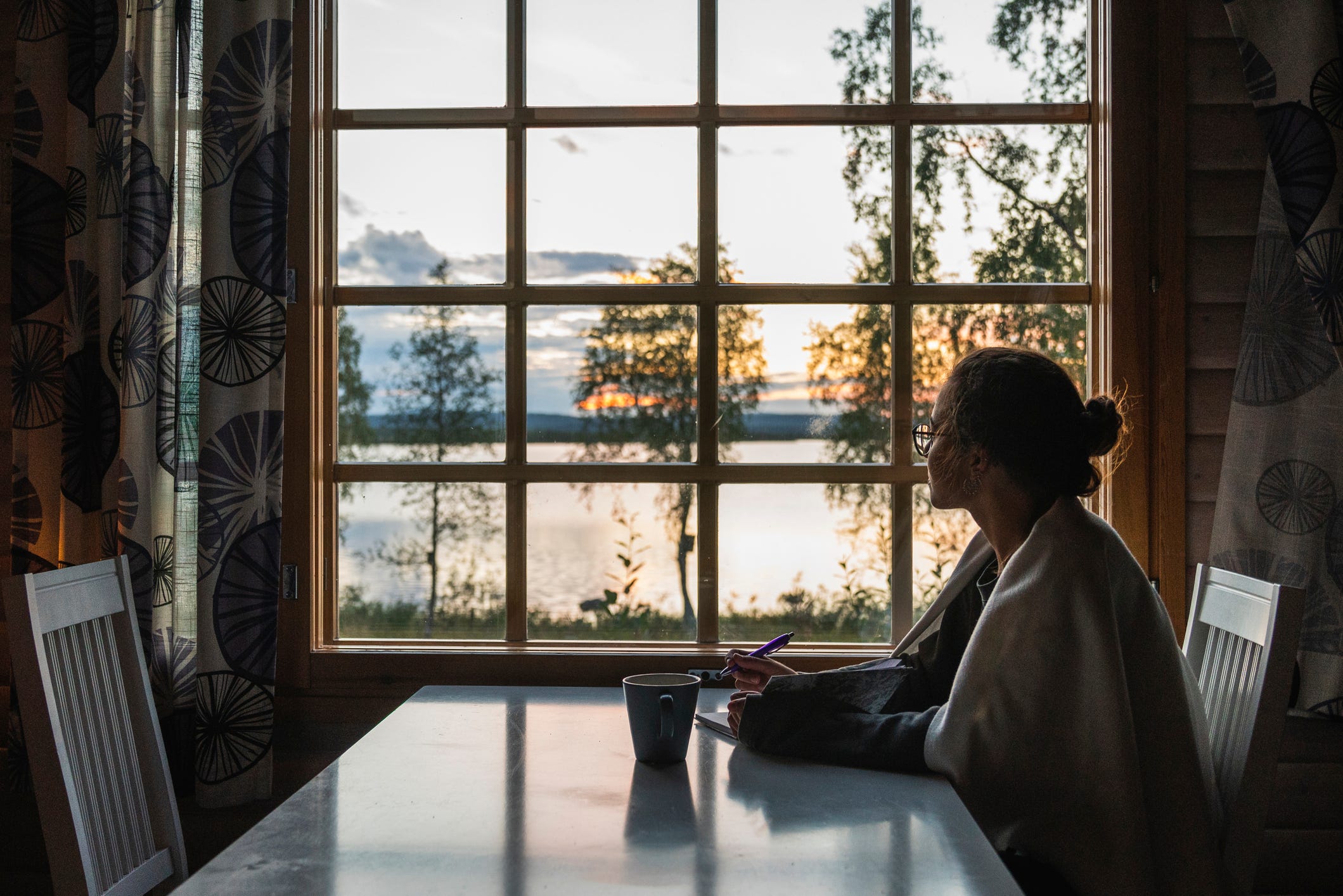
Hours after the 9/11 attacks, I finally made it back to my apartment in uptown New York City. Like everyone else lucky enough to return home that day, I existed in a daze, not comprehending what had just happened and no longer sure how to function. I had no idea how to manage my anxiety in the weeks that followed, so I surrendered to the 24-hour news cycle and drank myself to sleep, hoping this would help me reclaim the world I had lost.
While the coronavirus pandemic is a very different world event, the hysteria feels oddly familiar to what we experienced in 2001. Back then, public spaces seemed like death traps; today they feel like contagion zones. We don’t know whether to trust the news. And there’s no end in sight.
I didn’t know how to deal with panic back in 2001, but I’ve learned some more productive approaches since then. Here are some tips for staying calm, productive, and even creative during the coronavirus outbreak.
Avoid the panic amplifiers
Much has been written about how social media intensifies our anxiety, and we never see this more clearly than during a crisis. Yesterday, I made the mistake of visiting my town’s Facebook page, and the first post I read was one that questioned whether school officials were doing enough to keep classrooms disinfected. A heated discussion followed, with people telling each other they were overreacting, or underreacting. I got fully sucked into the drama, and before I knew it, an hour had passed.
To protect your mental health, limit your social media intake to a specified amount of time and make use of blocking features. Twitter allows you to mute specific words — you might want to do this with “coronavirus” or “COVID-19” for 24 hours once a week, just to give yourself a break. Of course, it’s still important to stay informed, so follow official health organizations such as the WHO, CDC, and your local offices of emergency management, along with one national and one local news source. Check these sites twice a day max. While the news is constantly changing, obsessing over minute-by-minute updates won’t do you any good.
Prepare within reason
For peace of mind, stock up on two weeks of necessities — not 12 years worth of toilet paper. Cans of beans, soups, and boxes of pasta, oats, rice, and frozen vegetables store well. It will comfort you, just a little, to know you’ve prepared your home for a potential quarantine situation, allowing you to focus on more productive tasks.
Connect with others
In the days after 9/11, I spent a lot of time with my siblings and close friends. We were lucky in that we could hang out at bars and hug it out. Today, with social distancing, meeting up with others is not advisable, and even though I’m surrounded by my immediate family at home, I’m already feeling a little isolated.
So far, two things have been helping: connecting with family and friends through video chat and spending time online with fellow creatives. I’m part of two writers’ groups on Slack where we read each other’s stories and share feedback. I’ve found that on stressful days, the act of pouring myself into someone else’s work provides me with a sense of normalcy and purpose.
Binge on healthy distractions
In stressful times, it’s easy to turn to bad habits. To make sure you don’t, fill your environment with healthy distractions — good books, interesting podcasts, or maybe your yoga mat. These days, I keep The Selected Poems of Donald Hall with me at all times. The poems are quick to read and help me to refocus. Find something that stimulates your creative mind and stifles your urge to check your notifications yet again.
Put sacred time on your calendar
Each day, give yourself 30 minutes of solitude. (If you’re suddenly working from home, you’ve regained your commute time, so take advantage of it.) Turn off your phone. Take a walk. Meditate. Whatever you do, free yourself from any production goals. You can jot down interesting thoughts if they come to mind — they often do — but don’t make this a work session. Total disconnection allows you to check in with yourself and primes your brain for creativity.
Make something
If you’re a creative person, you might feel like your work is trivial right now. But it’s in times of uncertainty and fear that we depend on art to remind us that beauty and originality still exist. Creating something — whether it’s a painting or a pie or a podcast — can help you and others find order and make sense of a confusing world. It doesn’t matter whether what you make is good or not. The act of creation brings joy, a sense of pride, and helps you forget about the ills of the world, at least for a little while. In times of calm or panic, it may just be the most productive thing you can do.
[“source=forge”]




